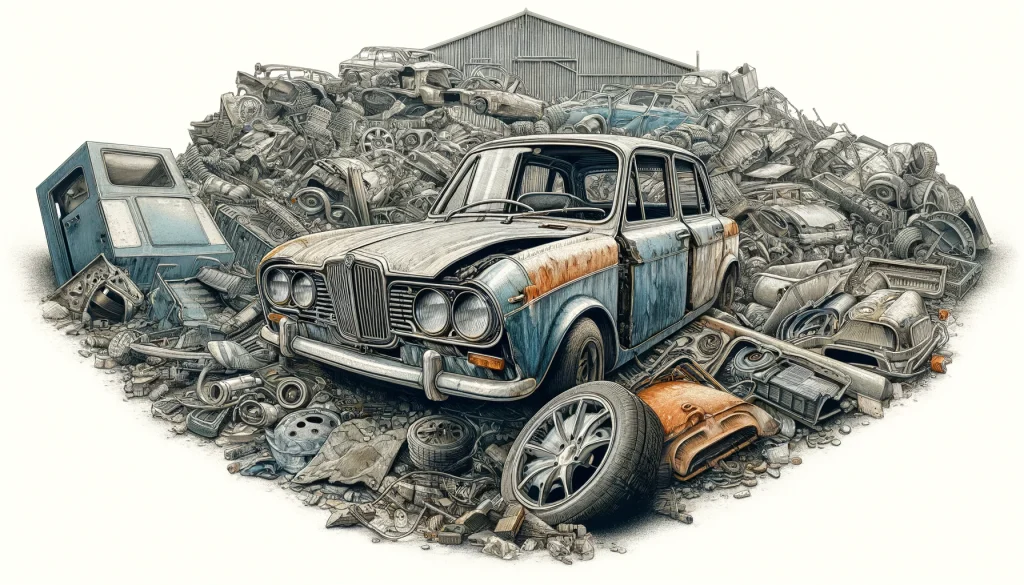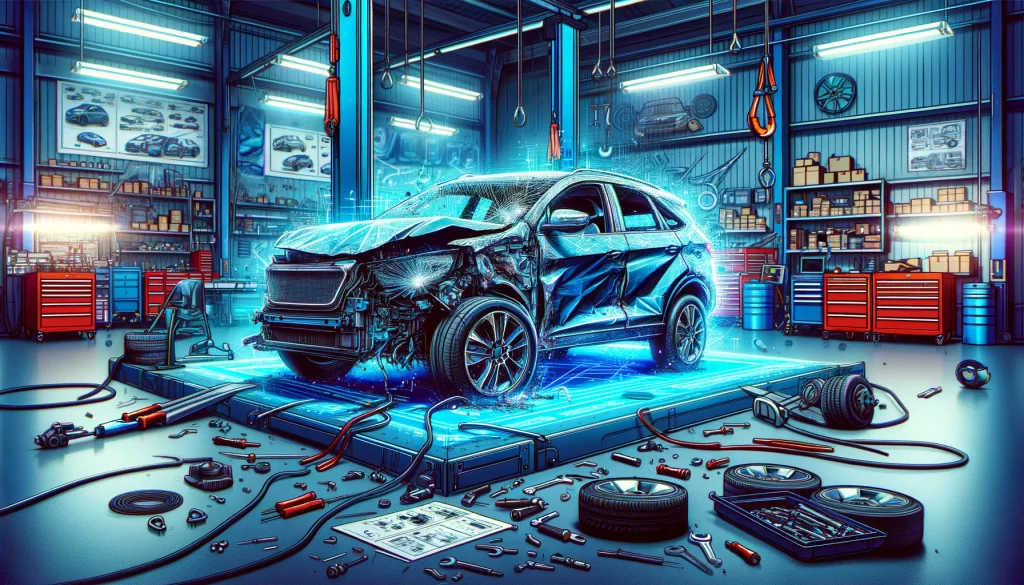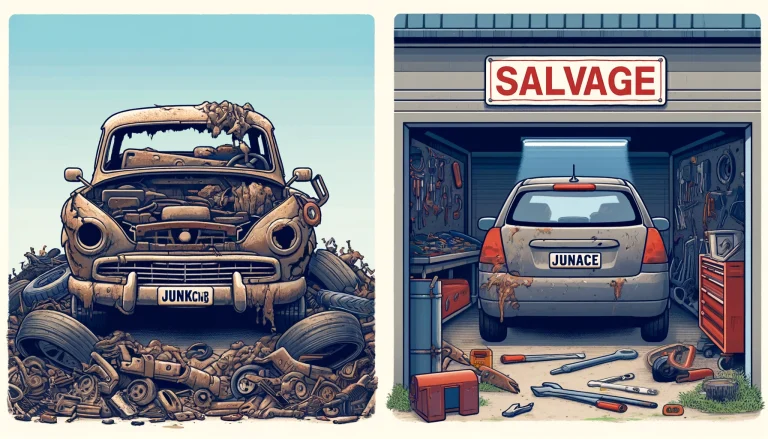The main difference between a junk car and a salvage car is that a junk car is considered worthless and not roadworthy, while a salvage car has been significantly damaged but can potentially be repaired and driven again.
Here’s a table summarizing the key differences:
| Aspect | Junk Car | Salvage Car |
|---|---|---|
| Definition | A vehicle that is inoperable, unsafe, and has little value beyond scrap metal or parts | A vehicle that has suffered major damage but can be repaired and returned to the road |
| Title Status | “Junk” or “Non-repairable” title issued by the state DMV | “Salvage” title issued by the state DMV |
| Repair Potential | Typically not worth repairing due to extensive damage or age | Can often be repaired, rebuilt, and re-titled for use on the road |
| Value | Very low, based mainly on weight of scrap metal and any usable parts | Varies depending on extent of damage and cost of repairs, but higher than a junk car |
Related Articles To Read:
- How to Junk a Car
- How to Junk a Car Without a Title
- What is a Junk Title
- Do I Need To Notify DMV If I Junk My Car
- How To Junk A Car In Florida
Table of Contents
Junk Cars
When a vehicle reaches the end of its useful life, sustains severe damage in an accident, or becomes inoperable due to mechanical issues, it may be classified as a junk car. In most cases, the cost to repair a junk car exceeds its value, making it economically unfeasible to fix.

Some common reasons a car may be considered junk include:
- Extensive rust or body damage
- Major engine or transmission failure
- Flood or fire damage
- Accident resulting in a bent frame or structural issues
- Advanced age and high mileage
Once a car is deemed junk, the owner can apply for a “junk” or “non-repairable” title from their state DMV.
This title indicates the vehicle is not roadworthy and should not be driven or registered. At this point, the car’s only value lies in its weight as scrap metal and any salvageable parts.
Salvage Car
In contrast to a junk car, a salvage car has suffered significant damage but can potentially be repaired and driven again.

When an insurance company declares a damaged vehicle a “total loss” (meaning the repair costs exceed a certain percentage of the car’s value), they will issue a salvage title.
Salvage cars often result from:
- Collisions and accidents
- Natural disasters like floods or hail storms
- Theft recovery after being stripped for parts
- Vandalism or fire damage
The repair process for a Salvage Car typically involves working with a licensed rebuilder to ensure the car passes all necessary inspections and meets safety standards. Once these steps are complete the car will be issued a Rebuilt title.
However, rebuilding a salvage car is expensive, and the repaired vehicle will likely have a lower resale value than a comparable non-salvage car.
Additionally, some states have strict requirements for re-titling salvage vehicles, so it’s important to research local laws before purchasing one.
Related Articles:
What to Do with a Junk or Salvage Car
If you find yourself with a junk or salvage car, you have a few options:
- Sell it to a junkyard or salvage yard. Many junkyards will pay cash for junk cars based on the weight of the scrap metal. They may also be interested in any usable parts.
- Sell it privately for parts. If your car has some valuable components, like a new alternator or undamaged wheels, you may be able to sell these parts individually to private buyers.
- Donate it to charity. Some non-profit organizations accept junk car donations and may even offer free towing. You could potentially claim a tax deduction for your donation.
- Rebuild a salvage car. If you have a salvage car with repairable damage, you can work with a licensed rebuilder to fix it and get it back on the road. Just be prepared for the time and expense involved.
Example of how a car is Junked:
Jill had an old sedan that barely ran due to numerous mechanical issues. With over 200,000 miles on the odometer and extensive rust, she knew it wasn’t worth fixing. Jill applied for a junk title and sold the car to a local junkyard, which paid her $300 based on the weight of the scrap metal.
Example of how a car becomes Salvage:
In contrast, Jack’s newer SUV was badly damaged in a rear-end collision. His insurance company declared it a total loss and issued a salvage title. Jack sold the SUV to a rebuilder, who repaired the damage and helped him get a rebuilt title. While it cost several thousand dollars to fix, Jack was able to drive his beloved SUV again.
Conclusion
Although most people think the terms junk and salvage sound similar, legally they are two completely different things whereas a junk car is going to be scrapped or broken down for parts, a salvage car is merely a designation by an insurance company that a car isn’t worth their money/time to fix.



